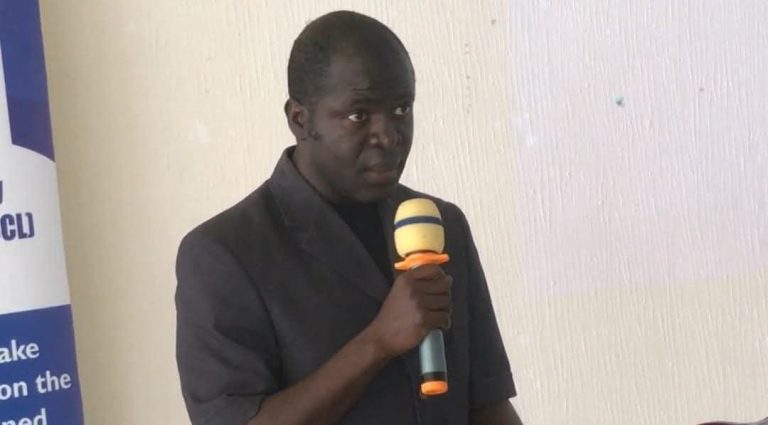Posts Categories
Latest Posts

(Monrovia, Liberia – February 5, 2025)– The Executive Director of the Environmental Protection Agency (EPA) of Liberia, Dr. Emmanuel K. Urey Yarkpawolo, has called for greater accountability and urgent action in implementing Liberia’s Nationally Determined Contributions (NDCs). Speaking at a Civil Society Stocktaking Program organized by the National Civil Society Council of Liberia (NCSCL) at the Corina Hotel in Sinkor, Dr. Yarkpawolo emphasized that Liberia must move beyond commitments and ensure real progress in the fight against climate change.
Liberia submitted its NDCs 2.0 in August 2021, setting an ambitious target to reduce greenhouse gas emissions by 64% by 2030. The country pledged to achieve 10% reduction using local resources, while the remaining 54% depends on international support. However, as the first phase of implementation (2021-2025) nears its end, Dr. Yarkpawolo stressed the need for an honest assessment of progress, highlighting gaps, and making necessary adjustments to achieve the country’s climate goals.
Dr. Urey Yarkpawolo emphasized that now is the time to critically evaluate what has been achieved, where improvements are needed, and how best to move forward. He called on all stakeholders, including government institutions, international partners, and civil society organizations, to ensure that commitments translate into concrete actions that benefit the country and its people.
Recognizing the crucial role of civil society organizations, he urged them to remain vocal in holding leaders accountable. He emphasized that those most affected by climate change are often the poorest and most vulnerable, and civil society must continue pushing for policies and programs that address these inequalities. Dr. Urey Yarkpawolo commended Madam Loretta Pope Kai and the National Civil Society Council of Liberia for taking the lead in monitoring Liberia’s climate commitments, stressing that stocktaking should be a continuous process rather than a one-time event.
As part of the EPA’s commitment to ensuring greater transparency and accountability, Dr. Urey Yarkpawolo announced that the agency would implement a new monitoring and evaluation framework. This framework, he said, will ensure that all climate-related projects accredited by the EPA align with the NDCs in a more structured and measurable manner. He stressed that stocktaking should not only focus on tracking progress but should also identify obstacles and create practical strategies for overcoming them.
Dr. Yarkpawolo warned that climate change is not just a global issue but a growing threat to Liberia’s future. He emphasized that the time for mere discussions and policy declarations is over, and what Liberia needs now is decisive action. He urged all stakeholders to treat climate change as a national emergency, warning that failure to act would have severe consequences for the country’s environment, economy, and future generations.
For his part, Abraham Tumbey, the programme coordinator at the United Nations Development Programme in Liberia explained the involvement of his organization into Liberia’s NDCs process.
Tumbey highlighted UNDP’s support to NDCs 2025 revision to include the hiring of national and international consultant, women and youth involvement in the Liberia’s Nationally Determined Contributions as well as empowering women in decision making to have youth or gender focused decision on climate related issues.
Also speaking, Loretta A. Pope Kai, the chairperson of the National Civil Society Council of Liberia thanked stakeholders and other partners for gathering to discuss issues related to climate change
Madam Pope Kai encouraged the participants to focus and make a meaningful contribution to get the deserving results the country needs.
The Global Stocktake (GST) under the Paris Agreement is a process that assesses countries’ progress towards meeting the goals of the Paris Climate Change Agreement, which is to lower global temperature below 1.5 degree Celsius. It’s a key part of the UNFCCC’s efforts to address climate change. Stocktaking means looking at everything related to where the world (or Liberia in this case) stands on climate action and support, identifying the gaps, and working together to chart a better course forward to accelerate climate action.
-30-
